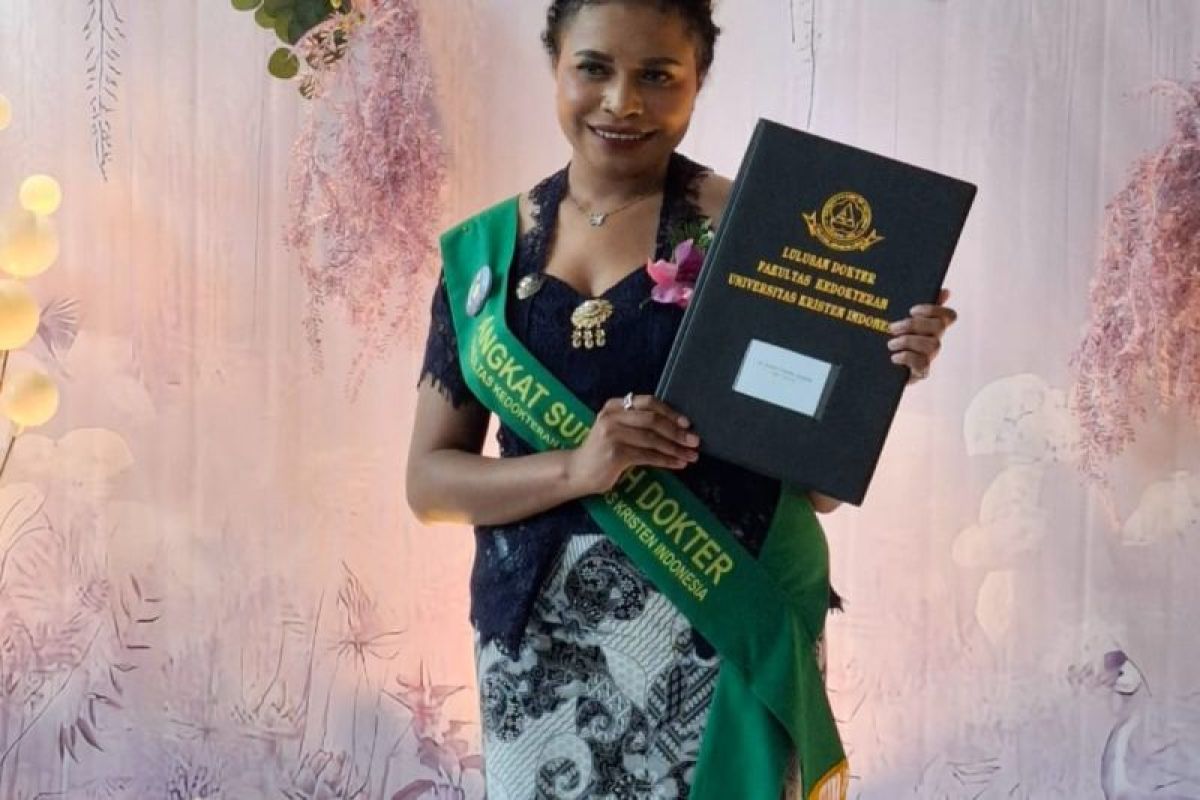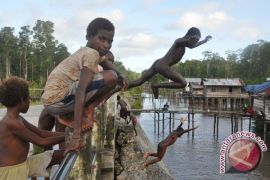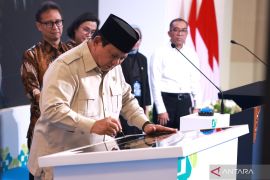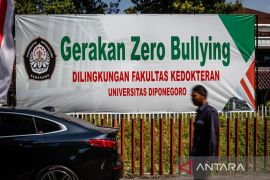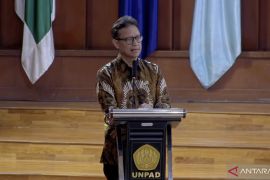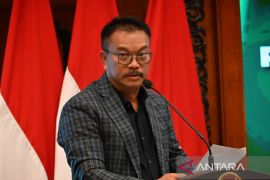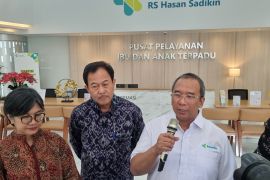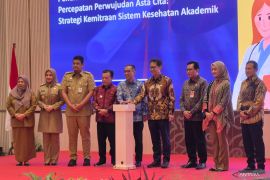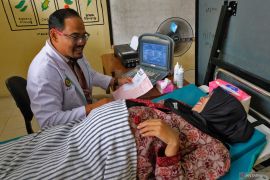Sephia Chrisila Jangkup made history as the first woman to be officially recognized as a doctor from the tribe that is native to Mimika, Central Papua Province. Hailing from Aroanop Village of Tembagapura District, Sephia took her oath of profession alongside 44 fellow young doctors that day.
She earned her doctor title after completing 3.5 years of medical study at UKI's Faculty of Medicine, followed by a two-year clinical clerkship program and passing a professional competency test.
Born on September 15, 2000, to Oktovian Jangkup and Elsye Klarce Rahakbauw in Sukabumi, West Java, the young doctor began her academic year at UKI in 2018 and completed her studies with a GPA of 3.57.
“I would like to extend my gratitude to God Almighty for enabling me to become the first Amungme woman to earn a doctor title. I present this achievement to my parents, the people of Amungme and Kamoro, and everyone who has supported me,” she stated when contacted from Manokwari, West Papua, on January 16.
Becoming a doctor has been her childhood dream. As a child, Sephia often played with toys resembling medical tools and equipment, such as stethoscopes and syringes, which her parents gave her.
Sephia’s determination to become a doctor strengthened as she majored in natural science at Lokon St. Nikolaus Senior High School in Tomohon City, North Sulawesi, where she consistently ranked first in class every academic year.
Moreover, upon graduating in 2018, she was recognized as the third-best pupil in her cohort due to her outstanding academic performance.
The 24-year-old Amungme woman attributed her success in becoming a doctor to the support she received from the Amungme and Kamoro Community Development Foundation (YPMAK) and PT Freeport Indonesia (PTFI), a subsidiary of the state-run mining firm MIND ID.
She has been a beneficiary of a scholarship program granted by YPMAK and PTFI since junior high school.
“The fee for medical studies at UKI ranged between Rp200 million (USD12.2 thousand) and Rp300 million, while the (cost for the) clinical clerkship program reached up to Rp400 million, not to mention additional fees. Fortunately, I was awarded a scholarship by YPMAK and PTFI," she stated.
Reflecting on her achievements, Sephia expressed hope that her success story would inspire other young talents from native Papuan tribes, especially Amungme and Kamoro, to strive for excellence and fulfill their ambitions.
“Perseverance, zealousness, hard work, and faith in God will always bring one to success,” she remarked.
Having attained a doctor's title, Sephia plans to enroll in a one-year internship program organized by the Ministry of Health to acquire a registration certificate (STR) for doctors.
She is eager to immediately apply her knowledge and skills into practice, leveraging them to serve the Amungme and Kamoro people in Mimika.
“We, in Mimika, have been facing a severe shortage of doctors. As a daughter of this region, it is my responsibility to serve the residents. Maybe I will join Mitra Masyarakat Hospital and then Waa Banti Hospital in Timika,” she noted.
The two hospitals were established with funds generated from the partnership between YPMAK and PTFI.
Sephia’s accomplishment in completing her medical study garnered praise from PTFI Director Claus Wamafma, who remarked that her success had brought pride to the people of Amungme and Kamoro.
“The unique point of Sephia Jangkup’s success story is the fact that she is the first (Amungme) woman to be a doctor. This achievement is historical, as it may help Papua address its shortage of doctors,” he affirmed.
Sephia follows in the footsteps of Beanal, who was the first individual from the Amungme tribe to become a doctor. Having completed his bachelor’s degree in 2023, Beanal is now pursuing a master’s degree in hospital management.
“Next year, we will get another new doctor, who is currently undertaking a clinical clerkship program at the UKI Faculty of Medicine in Jakarta. Hopefully, everything will go as expected. We will continue to work relentlessly to boost the quality of native Papuan children, especially those born among Amungme and Kamoro people,” Wamafma remarked.
He emphasized that PTFI would maintain its collaboration with YPMAK and other stakeholders in Mimika to provide better health services to locals.
“We are glad that our long journey has resulted in the emergence of native Papuan talents capable of completing medical studies. Hopefully, they will return (to Papua) to serve people with their medical skills,” he concluded.
PTFI has been instrumental in supporting the operations of hospitals and clinics located in coastal and mountainous areas of Mimika. The focus now shifts to ensuring these healthcare facilities are staffed with qualified doctors and nurses they need.
Related news: Army doctors, students serve residents near Indonesia-PNG border
Related news: West Papua's Unipa targets 100 doctors graduating in 2025
Editor: Rahmad Nasution
Copyright © ANTARA 2025
